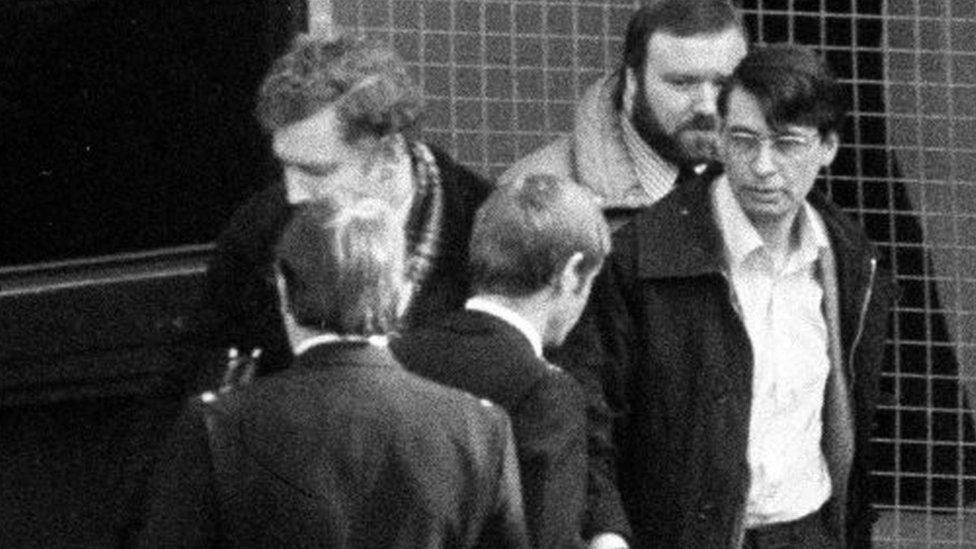Dennis Nilsen: Serial killer died in 'excruciating pain'
- Published

Dennis Nilsen was jailed for life in 1983 for the murder of six men
Serial killer Dennis Nilsen spent his final hours in his cell in "excruciating pain" with internal bleeding, his inquest has heard.
Nilsen, who admitted murdering at least 15 men and boys in the 1970s and 80s, died in May 2018 at HMP Full Sutton in East Yorkshire.
Two days before he had been taken to hospital with abdominal pains.
The 72-year-old - known as the Muswell Hill murderer - underwent an operation but later suffered a blood clot.
Nilsen's inquest at Hull Coroner's Court heard he spent his final hours lying in his own filth as he suffered a ruptured abdominal aortic aneurysm.
His medical cause of death was given as a pulmonary embolism and retroperitoneal haemorrhage, linked to the ruptured aneurysm.
A report from the Prisons and Probation Ombudsman stated that Nilsen had been left "deteriorating for two and a half hours" after rejecting the opportunity to be seen for longer in the healthcare wing on the morning of 10 May last year.
But it also stated that the treatment he initially received in prison was "commensurate with that which he would have received in the community".
Recording his verdict, Hull coroner Prof Paul Marks said: "Dennis Andrew Nilsen died of natural causes."

Nilsen, far right, was arrested after a plumber checking the drains at his flat found human remains
Nilsen, who was born in Fraserburgh, Aberdeenshire, would befriend his victims in pubs and bars before luring them to his flat, where he would kill them and sit with their corpses before dismembering them.
The civil servant's crimes were discovered when a neighbour called a plumber to unblock a drain outside the house in which Nilsen had a flat on Cranley Gardens, Muswell Hill, north London. Human remains the killer had tried to flush away were found.
Nilsen's earlier murders were committed at his previous flat, at 195 Melrose Avenue in Cricklewood, north-west London.
He was jailed for life in November 1983, with a recommendation he serve a minimum of 25 years, following his conviction for six counts of murder and two of attempted murder. The sentence was later upgraded to a whole-life tariff.
- Published13 May 2018
